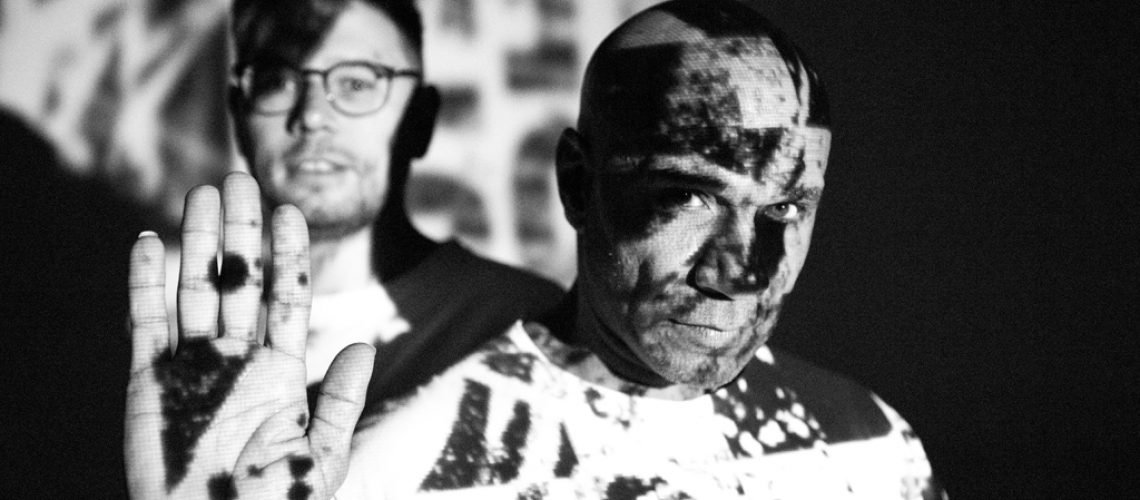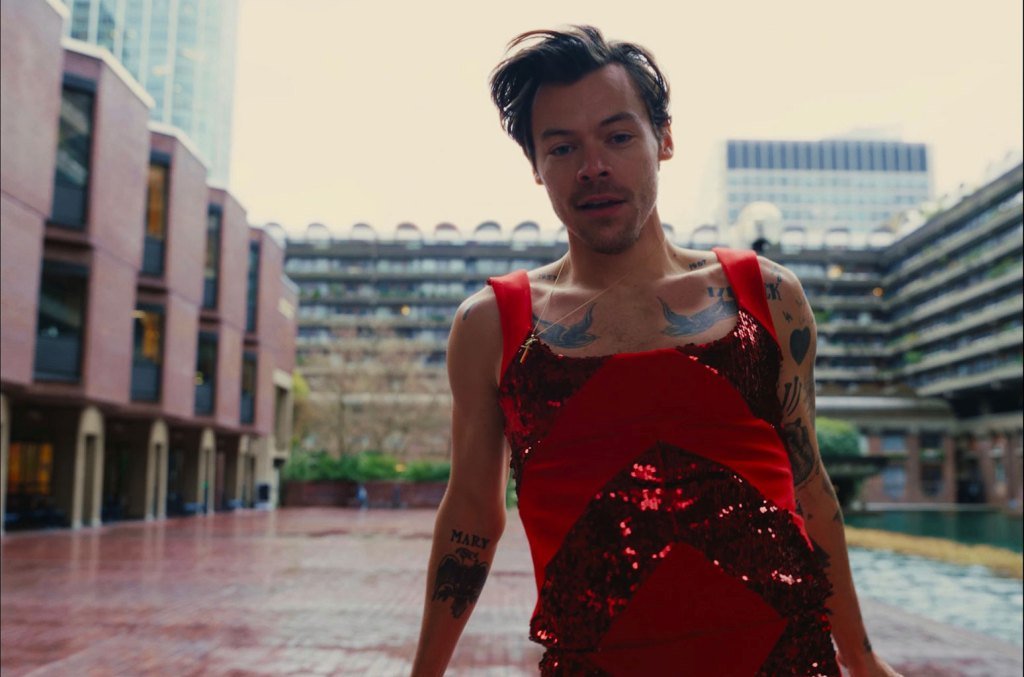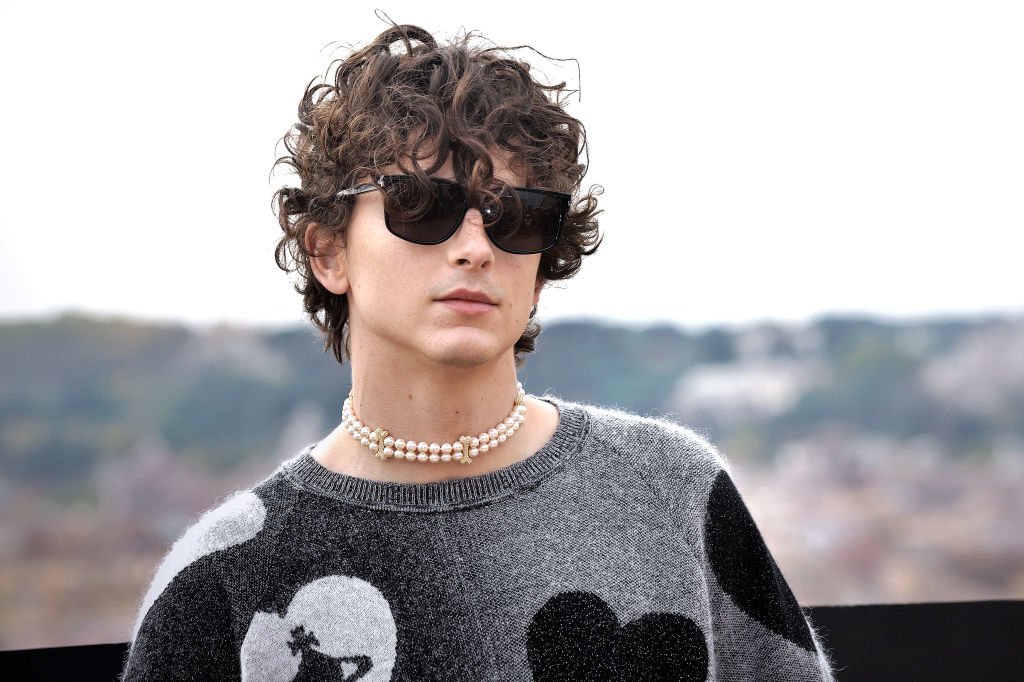Subjective, the longstanding collaboration between electronic icon Goldie and celebrated engineer and producer James Davidson, gets new life today (May 20) with the duo’s sophomore album, The Start of No Regret.
Produced between Davidson’s London studio and Goldie’s spot in Phuket, Thailand — where the artist has lived with his family for years — the project’s dozen richly textured, cleanly produced tracks span moods from contemplative to ethereal to dark and sounds from downtempo to rave to D&B.
Friends since meeting on the Italian island of Sardinia in 2012, the Subjective project began in 2019 with the duo’s debut album Act One – Music For Inanimate Objects. The following year, Goldie reconnected with dance tastemaker Pete Tong for the 25th anniversary of Goldie’s game-changing 1995 LP, Timeless, which was released via Tong’s FFRR label. (Both men have also been awarded Britain’s title of Member of the Order of the British Empire, MBE, for their contribution to arts and culture in the UK.)
When Tong heard the Subjective output, he signed Subjective to his ThreeSixZero Recordings, with the duo bouncing between the UK and Thailand while working on the project for two years that have been as moody as the music they created during them. Below, the duo answer Billboard‘s questions about their new project and the geographical roots behind it, and share some lessons they’ve learned over the course of their collective decades in the game.
1. Where are you in the world right now, and what’s the setting like?
G: I’m sitting in Thailand in my recording studio. The sun’s going down, and I’m about to go out for the sunset.
2. What is the first album or piece of music you bought for yourself, and what was the medium?
G: It was a vinyl album, there were a few: The Stranglers’ Rattus Norvegicus, Bob Marley’s Uprising and Human League.
3. What did your parents do for a living when you were a kid, and what do or did they think of what you do for a living now?
G: I grew up in an institute with lots of kids that would buy music on a Saturday. We always used to go every Saturday to a record shop called Ruby Reds Records in Wolverhampton and buy 7 inch records every week, and we used to come back and have 15 minutes on a Saturday and Sunday to play music on a gramophone, so my musical pallet is quite wide. I like everything from punk to funk, always have done. No musical background; my mum used to go and sing in a pub where I first heard music like John Holt and listened to reggae sound system music.
4. What’s the first non-gear thing you bought for yourself when you started making money as an artist?
G: A Mercedes 190 Cosworth.
5. If you had to recommend one album for someone looking to get into dance music, what would you give them?
G: Maybe Prodigy’s The Fat of the Land.
6. What’s the last song you listened to?
7. Did being awarded MBE affect your life in any way? If so, how?
G: No, not really, it just changes peoples’ perspective on how and what you have achieved within your given arts. I’m just glad for my mother that she was able to see that; she was really proud. So I always think of that as an achievement.
8. I know you were close with Virgil Abloh. What do you think his legacy will be in the realm of music?
G: Virgil’s legacy is cultural and that covers a lot of different things. Like, the Grammys got it so wrong — “the Hip Hop Designer” — probably one of the most unquotable quotes you could ever quote about someone who’s actually a phenomenon in their own right in terms of probably being one of the greatest design minds of this century for sure. Culturally the most important man we’ve ever had on this planet.
9. You’ve lived in Phuket for a long time. Has being there changed you in any way and if so, how?
G: Guess I’m slightly more placid than I used to be, and I don’t like to be interrupted over here — as that’s why I’m here, to get away from the madness of the rest of the world and find some solace in the real jungle.
10. The new album is titled The Start Of No Regret. Have you carried significant regrets in your life? If so, what were they and how did you deal with them?
G: I have no regrets. The answer is in the question, that’s why it’s the start of no regret. I wouldn’t be where I am in my life without mistakes.
11. You bring up the concept of egoless-ness a lot. What does it mean to you, and why is it something to strive for? In what moments are you without ego?
G: Every human being on the planet carries ego; it’s about controlling it to some level. So doing things that are spiritual to one’s self, one’s own self maintenance — whether it’s hiking, yoga, swimming, riding — it’s more of that please, thank you! Within the spiritual world — Buddhism or anything else that you look at — when you leave this planet you leave without the ego, you leave with the very mortality of our existence. I think that the whole idea of going through life, the lesson is to detach from the ego, as that’s what gives us fear. Ego just leads to fear, fear of letting go of anything and withholding things that we should be letting go of.
12. I understand that David Bowie told you that “reinvention is everything.” What does that sentiment mean to you, and how have you taken it to heart?
G: On the outside looking in, I have reinvented myself many, many times. The very premise of the question is that — is to keep going and reinventing yourself through art, music and various media. It’s something I’ve managed very well, throughout the nearly four decades of what I’m about. It’s all about the art, and the character within the art and what physical, positive evidence I can leave of my existence when I’m gone.
13. James, I understand that much of this album was made in Thailand. Did being in what I have to imagine was a sort of exotic environment affect your work on this project in any way?
JD: The environment has a big affect on the music. Being next to the jungle in Phuket fosters behavior like making field recordings of the wildlife, weather, atmospheres etc. They’re are all over the album as FX layers. Also, the whole feeling is less aggressive and more laid back. Of course, there are tunes [like] “Lie Dassai Menace” and “Fathoms” where we show a little more grit, but overall Thailand has put a more peaceful spin on things.
14. James, is there an ideal setting in which to listen to this new album?
JD: The album is very layered, not just a simple vibe rolled out. I’d say any atmosphere where you can allow yourself to be drawn in would be ideal.
15. James, you said that you tried making some darker tracks for the album, but that it was easier to get into “nice mode.” Why was niceness the prevailing spirit for this project?
JD: I think again because of where it was written! But also the studio is in the family home, a very loving home. Goldie and I have become very close friends over the last seven years; I’ve been back to work in Thailand so many times, I feel like part of the family, and that shows in the music somehow.
16. Goldie, are there causes or charities you’re involved with that you’d like people to know about?
G: No, I’m all about charity in one’s own environment and where one is. I do support various charities, but I keep that private in my life. But I do my bit, and I’m happy for that. I feel I can sleep at night. I think anything to do with orphans or young people who lack parents or mentorship are always a good start for charitable projects, and that’s what’s really important to me from my own background. I wish I’d had someone like me telling me which direction to go after all the traumatic experiences I’ve had in my life.
17. What’s your favorite place to listen to and experience dance music?
G: Depends on the setting. What’s your favorite hotel to have a bath in? It’s all perspective of where one is. Setting to listen to dance music — 3 a.m. in the car on the way to London going from one gig to another, on a plane thinking about what one’s going to play at the club when you get there, on a beach listening to chill vibes at 6 a.m., its all subjective of when and where I’ll play that music. But dance music generally is in my life 24 hours a day.
18. What’s the best business decision you’ve ever made?
G: The best decision is probably building a house, building property. The best business decisions you can make is bricks and art, because they are solid. If you make the right choices it can be very lucrative.
19. Who was your greatest mentor, and what was the best advice they gave you?
G: I think Mr. Hurst, my art teacher, because I failed at everything else. There was a documentary made called The Alchemist which was 55 minutes long for some reason, which was about me going to visit my art teacher Mr. Hurst who got me through my O level examination of a still life drawing through a window of a school. There was an iron, an ashtray and a newspaper, at the back of the field there was a gypsy camp and caravans that were blurred and conifer trees and I had to do still life. I was great at sculpture, I passed my exam with a Stevie Wonder bust from an album cover with his braided hair and glasses with flying colors, but I was very bad at drawing. It was only when I discovered graffiti that I got my hand style.
So still life and portraiture was horrible for me, which is probably why I do a lot of them now. I found that he said you have to do this, you have to keep going, it’s the discipline of the art form, it’s a dirty job but someone has to do it, and you’ll benefit from it later on. I went to his retirement party as a surprise, and I sat next to him and we both cried, because I surprised him. It just felt so good to go back to your art teacher 40 years later and thank him for his contribution to my life. I think more people should do that.
20. One piece of advice you’d give to your younger self?
G: Don’t wish too hard, kids — it might just come true.





